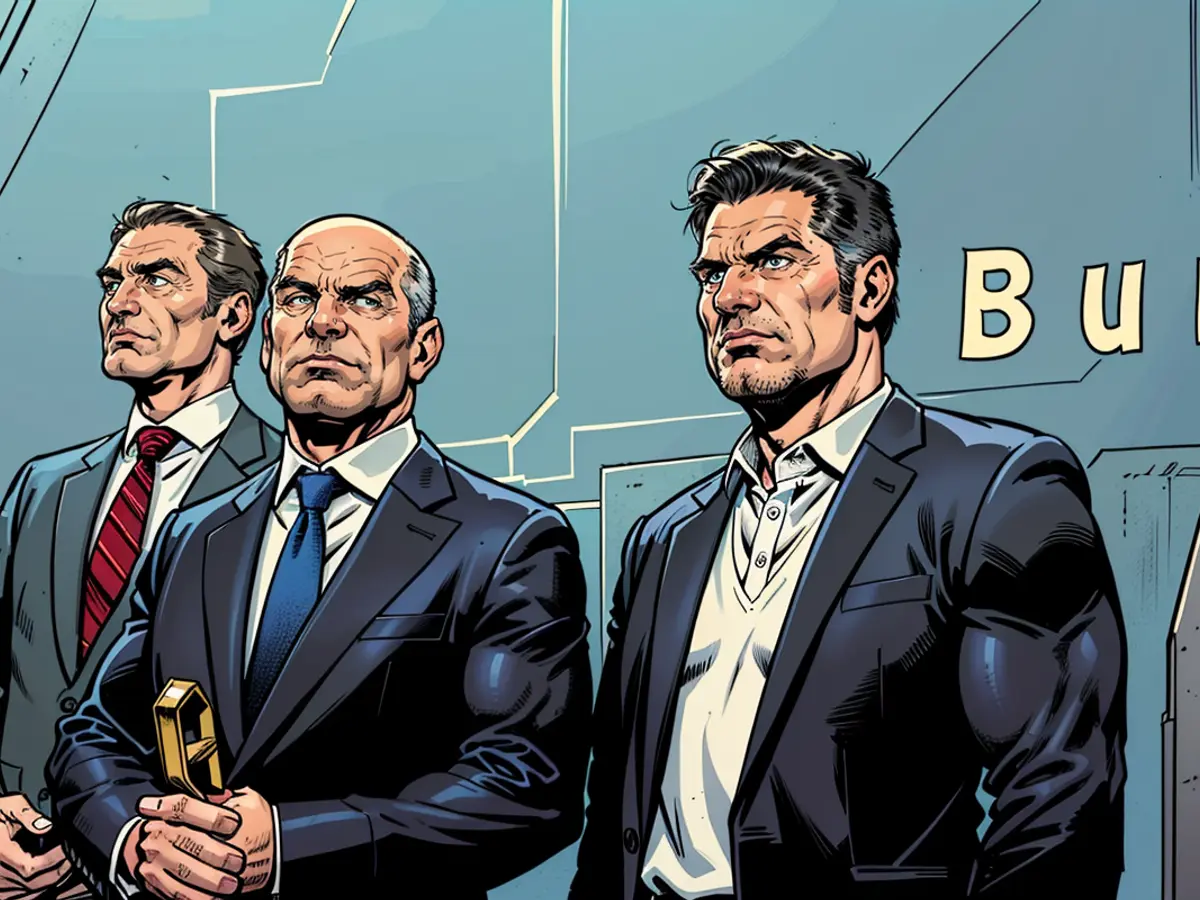Half lie is also well spun
The household for the coming year manages to keep the debt brake in check, but only with a series of tricks. Structural problems are postponed to the future.
Federal Finance Minister Christian Lindner has good reasons to be proud of his 2025 budget proposal. The state will have to make do with significantly less money than in previous years. The Bundesverfassungsgericht's order to remove the former Corona credits from the Climate and Transformations Fund, and the almost zero economic growth, pose major challenges. Yet hardly any department is spared from having to save, Germany is investing heavily and reducing its debt-to-GDP ratio. And what Lindner and his FDP care most about: The debt brake will be maintained. However, a second look reveals: This can only be achieved at the price of numerous tricks that bring the budget to the brink of honesty.
Firstly, the household relies on growth stimulated by the economic package, which must first materialize. An assumed additional 0.5 percentage points of GDP growth is ambitious. Everything depends on whether the 20 legislative packages associated with the Growth Initiative come through the Bundestag and Bundesrat as planned. Critical voices are already being heard from the opposition parties regarding individual aspects. The underlying economic forecasts are already fragile in themselves. These forecasts are always volatile, but they have rarely been as volatile as in the past two years.
Principle of Hope
Secondly, the traffic light coalition plans a global under-expenditure of 17 billion Euros for 2025 and 2026. In plain English: They are going to the restaurant with less money than planned and hoping that more money will come in during the meal or that less drinking expenses will be incurred than expected. Such an approach is commonplace - but not in this magnitude. The money is to come from drawing on surpluses at the Kreditanstalt für Wiederaufbau (KfW) and converting grants to Bahn and Autobahn GmbH into loans. Such loans would not count towards the debt brake. Whether this is legally sound is as uncertain as the hope that not all terminated social benefits and funding programs will be fully redeemed.
Thirdly, this hope is also the basis for massive cuts in the Labor Ministry under Hubertus Heil. The complications with social benefits and incentives for employment are the basis for hoped-for savings of almost 5 billion Euros. The same calculation applies to Annalena Baerbock's ministry: The Foreign Ministry has received less money for humanitarian aid. Something is to be added in a supplementary budget. That makes two ministries with potentially large supplementary budget needs. Add to that the Defense Ministry, where Bundesverteidigungsminister Boris Pistorius has doubts about whether the money for military aid to Ukraine is sufficient.
Fourthly, the method of hope has taken on unprecedented dimensions as the basis for the budget planning under Christian Lindner. The federal government must again inject 11 billion Euros into the budget for 2024. This is possible because the economic growth is so weak that the debt brake allows for more credits than anticipated at the end of 2023. This year, the coalition starts from a weak economic conjuncture, stimulates the fiscal space, and at the same time tightens the budget. It is unclear how a potential mid-range two-digit billion Euro amount for a supplementary budget could be put together under these circumstances.
Solving structural problems by postponing them into the future is the second foundation of this fiscal policy. This is evident in the financing gap of the Bundeswehr, which amounts to at least 28 billion Euros after the expenditure of the special fund. The adherence to the debt brake can only be maintained by relying on shaky evasion instruments, optimistic economic forecasts, and the hope that unexpected events do not occur. This can be done. However, why this approach should be more serious than borrowing several billion euros by suspending the debt brake remains open. The important thing is that the debt brake is met on paper. Whether Lindner has fulfilled the "budget truth and budget clarity" demanded by SPD fraction leader Rolf Mützenich is a matter that the Bundestag will decide in the coming months. It is already clear: In light of so many open questions, the claim of a united budget, which has been circulating for over a week, is simply not tenable.
Fifthly, the proposed Federal Election 2025 budget from the Federal Finance Minister Christian Lindner and his FDP party highlights the significance of the Debt Brake principle. The coalition government, led by the Traffic coalition, has included the Debt Brake in their budget proposal, aiming to maintain financial stability.
Sixthly, Christian Lindner's budget for the Federal Election 2025 includes household policy adjustments. The Traffic coalition is prioritizing fiscal prudence, with the Debt Brake acting as a guiding principle, even as it addresses critical social issues.
Seventhly, the Debt Brake mechanism plays a crucial role in the Traffic coalition's budget proposal headed by Christian Lindner for the Federal Election 2025. The decision to adhere to the Debt Brake underscores the coalition's emphasis on fiscal responsibility and long-term financial stability.








